India-China Trade Ties: Diplomatic Thaw Unlikely to Alter Dynamics
By Rediff Money Desk, New Delhi Oct 23, 2024 18:13
GTRI says improved India-China ties won''t significantly change trade relations. India''s trade deficit with China remains a concern, despite diplomatic breakthroughs.
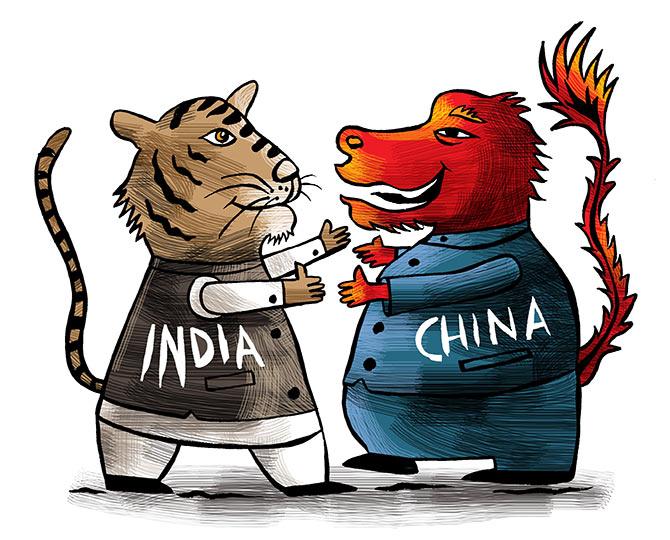
Illustration: Uttam Ghosh/Rediff.com
New Delhi, Oct 23 (PTI) The improvement in diplomatic relations between India and China is unlikely to dramatically alter the economic and trade ties between the countries in the near future, think tank GTRI said on Wednesday.
It said that India's low exports and high reliance on Chinese imports, especially in industrial sectors, are due to structural issues and it will require long-term policy efforts to address the trade imbalance.
India and China have firmed up an agreement on patrolling by their military along the Line of Actual Control (LAC) in eastern Ladakh, in a major breakthrough to end the over four-year standoff.
Prime Minister Narendra Modi and Chinese President Xi Jinping held bilateral talks on Wednesday on the margins of the BRICS summit in Russia, in their first structured meeting since the eastern Ladakh border row erupted in 2020.
"The recent meeting between Modi and Xi may signal a diplomatic breakthrough, but it is unlikely to dramatically alter the economic and trade dynamics between India and China in the near future," the Global Trade Research Initiative (GTRI) said.
For India, reducing its trade deficit with China and encouraging more balanced economic relations will require a multifaceted approach, including strengthening domestic manufacturing capabilities, diversifying its import sources, and promoting export growth, it added.
"Until then, the thaw in diplomatic relations, while positive, is unlikely to bring about a significant shift in India-China trade and economic ties. Trade dynamics between the two countries remain largely unaffected by political developments, driven by private businesses rather than government-led initiatives," GTRI Founder Ajay Srivastava said.
He also said that even as political relations between India and China deteriorated following the 2020 clash, trade between the two countries remained relatively unaffected as this is largely because trade is driven by private business interests, with minimal direct government involvement.
In FY20, India's exports to China stood at USD 16.61 billion. It was USD 16.65 billion in 2023-24. However, India's imports surged during this period, from USD 65.26 billion in FY2020 to a staggering USD 101.74 billion in the last fiscal.
"This ballooning trade imbalance has left India with a cumulative trade deficit of over USD 334 billion over the past five years, reflecting a growing reliance on Chinese goods," the think tank said.
India's exports to China have remained limited to raw materials like iron ore, marine products, cotton, and certain chemicals, whereas China's exports to India primarily consist of finished industrial goods, ranging from machinery and electronics to pharmaceuticals and chemicals.
Despite India's efforts to boost local manufacturing, the country remains heavily dependent on Chinese industrial imports, especially in sectors like electronics, telecommunications, and machinery.
It also said that over the last 15 years, China's share of India's total industrial imports has grown significantly, increasing from 21 per cent to 30 per cent.
China now dominates across multiple key sectors of India's imports, including electronics, telecom, and electrical products (38.7 per cent of India's global imports in this sector come from China). The other sectors where India is significantly dependent on imports are machinery; chemicals and pharmaceuticals; iron, steel, and base metals; plastics; textiles and clothing ; and automobiles.
"Chinese goods, known for their cost competitiveness, have flooded Indian markets, exacerbating challenges for local manufacturers struggling to compete on price," Srivastava said.
He added that as Chinese companies continue to expand in India, particularly in sectors like energy, electronics, and transportation, India's dependence on Chinese imports is likely to grow further.
"This raises concerns about India's economic resilience and the risks posed by over-reliance on a single trading partner, especially given the fragile political relationship between the countries," he said.
Further while trade between India and China has flourished, Chinese investments in India have been underwhelming. Even before the Galwan Valley clash, China was not a major investor in India.
From April 2000 to March 2024, China's cumulative investments in India amounted to just USD 2.5 billion.
After the 2020 military standoff, India imposed new rules requiring government approval for any Chinese investment, effectively slowing down the inflow of funds.
Certain quarters are now calling for India to relax these restrictions in light of the recent diplomatic thaw.
"However, it is unrealistic to expect a surge in Chinese investments, even if the restrictions are eased. China has historically shown limited interest in making substantial investments in India, particularly in sectors that require technology transfer or strategic collaboration," he said.
The think tank said that even before the conflict, China was reluctant to share technology in sectors critical to India's industrial growth, such as electronics and electric vehicles.
"Moving forward, Chinese investments may flow into labor-intensive industries like garments or shoes, where local manufacturing might be further undermined," it said.
It added that in high-tech sectors like electronics and electric vehicles, Chinese companies may focus on assembling products in India, with up to 90 per cent of components still being imported from China.
In July, the pre-budget Economic Survey made a strong case for seeking foreign direct investments (FDI) from Beijing to boost local manufacturing and tap the export market.
At present, the bulk of the FDI coming into India falls under the automatic approval route, however, FDI from countries sharing land borders with India needs mandatory government approval in any sector.
It said that India's low exports and high reliance on Chinese imports, especially in industrial sectors, are due to structural issues and it will require long-term policy efforts to address the trade imbalance.
India and China have firmed up an agreement on patrolling by their military along the Line of Actual Control (LAC) in eastern Ladakh, in a major breakthrough to end the over four-year standoff.
Prime Minister Narendra Modi and Chinese President Xi Jinping held bilateral talks on Wednesday on the margins of the BRICS summit in Russia, in their first structured meeting since the eastern Ladakh border row erupted in 2020.
"The recent meeting between Modi and Xi may signal a diplomatic breakthrough, but it is unlikely to dramatically alter the economic and trade dynamics between India and China in the near future," the Global Trade Research Initiative (GTRI) said.
For India, reducing its trade deficit with China and encouraging more balanced economic relations will require a multifaceted approach, including strengthening domestic manufacturing capabilities, diversifying its import sources, and promoting export growth, it added.
"Until then, the thaw in diplomatic relations, while positive, is unlikely to bring about a significant shift in India-China trade and economic ties. Trade dynamics between the two countries remain largely unaffected by political developments, driven by private businesses rather than government-led initiatives," GTRI Founder Ajay Srivastava said.
He also said that even as political relations between India and China deteriorated following the 2020 clash, trade between the two countries remained relatively unaffected as this is largely because trade is driven by private business interests, with minimal direct government involvement.
In FY20, India's exports to China stood at USD 16.61 billion. It was USD 16.65 billion in 2023-24. However, India's imports surged during this period, from USD 65.26 billion in FY2020 to a staggering USD 101.74 billion in the last fiscal.
"This ballooning trade imbalance has left India with a cumulative trade deficit of over USD 334 billion over the past five years, reflecting a growing reliance on Chinese goods," the think tank said.
India's exports to China have remained limited to raw materials like iron ore, marine products, cotton, and certain chemicals, whereas China's exports to India primarily consist of finished industrial goods, ranging from machinery and electronics to pharmaceuticals and chemicals.
Despite India's efforts to boost local manufacturing, the country remains heavily dependent on Chinese industrial imports, especially in sectors like electronics, telecommunications, and machinery.
It also said that over the last 15 years, China's share of India's total industrial imports has grown significantly, increasing from 21 per cent to 30 per cent.
China now dominates across multiple key sectors of India's imports, including electronics, telecom, and electrical products (38.7 per cent of India's global imports in this sector come from China). The other sectors where India is significantly dependent on imports are machinery; chemicals and pharmaceuticals; iron, steel, and base metals; plastics; textiles and clothing ; and automobiles.
"Chinese goods, known for their cost competitiveness, have flooded Indian markets, exacerbating challenges for local manufacturers struggling to compete on price," Srivastava said.
He added that as Chinese companies continue to expand in India, particularly in sectors like energy, electronics, and transportation, India's dependence on Chinese imports is likely to grow further.
"This raises concerns about India's economic resilience and the risks posed by over-reliance on a single trading partner, especially given the fragile political relationship between the countries," he said.
Further while trade between India and China has flourished, Chinese investments in India have been underwhelming. Even before the Galwan Valley clash, China was not a major investor in India.
From April 2000 to March 2024, China's cumulative investments in India amounted to just USD 2.5 billion.
After the 2020 military standoff, India imposed new rules requiring government approval for any Chinese investment, effectively slowing down the inflow of funds.
Certain quarters are now calling for India to relax these restrictions in light of the recent diplomatic thaw.
"However, it is unrealistic to expect a surge in Chinese investments, even if the restrictions are eased. China has historically shown limited interest in making substantial investments in India, particularly in sectors that require technology transfer or strategic collaboration," he said.
The think tank said that even before the conflict, China was reluctant to share technology in sectors critical to India's industrial growth, such as electronics and electric vehicles.
"Moving forward, Chinese investments may flow into labor-intensive industries like garments or shoes, where local manufacturing might be further undermined," it said.
It added that in high-tech sectors like electronics and electric vehicles, Chinese companies may focus on assembling products in India, with up to 90 per cent of components still being imported from China.
In July, the pre-budget Economic Survey made a strong case for seeking foreign direct investments (FDI) from Beijing to boost local manufacturing and tap the export market.
At present, the bulk of the FDI coming into India falls under the automatic approval route, however, FDI from countries sharing land borders with India needs mandatory government approval in any sector.
Source: PTI
DISCLAIMER - This article is from a syndicated feed. The original source is responsible for accuracy, views & content ownership. Views expressed may not reflect those of rediff.com India Limited.
You May Like To Read
TODAY'S MOST TRADED COMPANIES
- Company Name
- Price
- Volume
- G G Engineering
- 2.13 (+ 12.11)
- 70001344
- Vodafone Idea L
- 7.67 ( -5.66)
- 68482952
- Srestha Finvest
- 0.66 ( -4.35)
- 32525731
- GTL Infrastructure
- 1.98 ( -4.81)
- 26692659
- AvanceTechnologies
- 0.82 (+ 2.50)
- 23608944
MORE NEWS

Cryptocurrency Risks to Financial Stability:...
RBI Governor Shantikanta Das warns of significant risks to financial stability posed by...

Soft Landing of Global Economy Possible:...
India's Finance Minister Nirmala Sitharaman says a soft landing of the global economy...

Coal India Q2 Profit Drops 22% to Rs 6,275 Cr
Coal India Ltd (CIL) reported a 22% drop in consolidated profit for the quarter ended...



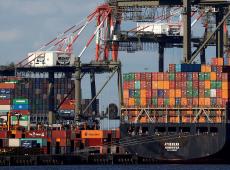

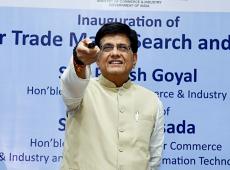

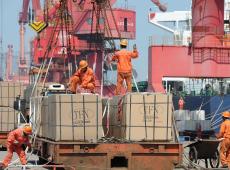
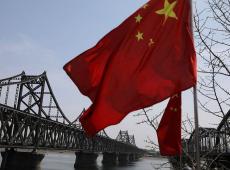



 © 2024 Rediff.com India Limited. All rights reserved.
© 2024 Rediff.com India Limited. All rights reserved.